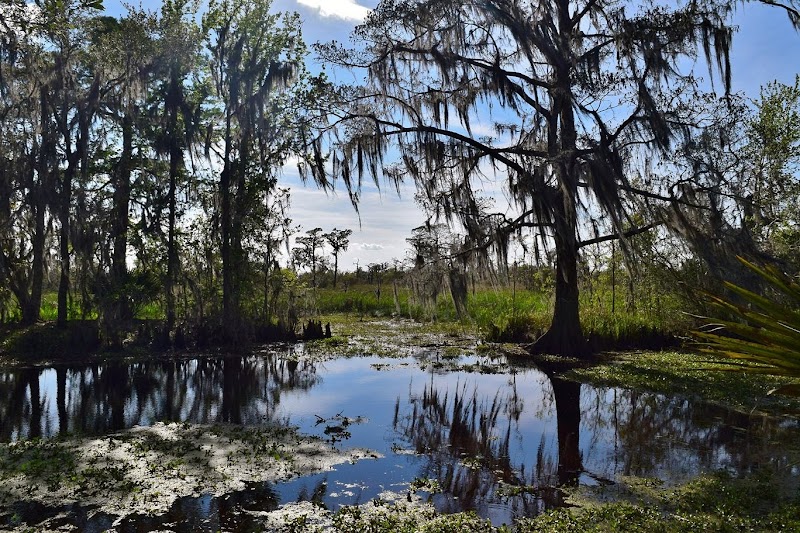
Hooked on Action: Fishing Tournaments Along the Amite River in Denham Springs, Louisiana
Fishing tournaments on the Amite River near Denham Springs offer a blend of competitive spirit and natural challenge. Here, fierce currents and abundant fish create a dynamic arena for anglers of all skill levels to test their mettle and enjoy Louisiana’s vibrant outdoors.
Start Early to Beat the Heat
Tournaments typically begin at dawn when fish are most active and temperatures are lower. Prepare to launch early and bring layered sun protection.
Bring Hydration and Snacks
Long hours under the sun require steady hydration. Pack sufficient water and energy-rich snacks to maintain focus and stamina.
Use Stable Footwear
Slippery docks and muddy banks demand proper footwear with grip to keep safety intact during quick movements or boat boarding.
Check Local Regulations Beforehand
Permits, catch limits, and tournament rules can vary; ensure you have all approvals and knowledge to avoid fines or disqualification.
Hooked on Action: Fishing Tournaments Along the Amite River in Denham Springs, Louisiana
The Amite River doesn’t just run through Denham Springs; it challenges anglers with its restless flow and fertile waters, making it a hub for competitive fishing tournaments. These events bring together veterans and novices alike, all drawn to the river’s pull where bass, catfish, and crappie play fiercely beneath the surface. Tournament days here are punctuated by the anticipation of a fight—a tug, a splash, a quick reel, and the race against time to weigh and measure the day's catch.
Each tournament unfolds along stretches of the Amite that balance accessibility with the rawness of Louisiana’s wetlands. Anglers can expect a river that extends over 137 miles, but most competitive spots cluster near Denham Springs, where the terrain eases and the river widens, allowing boats freedom to maneuver. The terrain along riverbanks is a mix of sloping mud and dense vegetation, requiring sturdy footwear and careful footing on docks or launch ramps.
Unlike quiet fishing trips, tournaments demand preparation beyond bait and tackle. Hydration is not a luxury; it’s a priority under the bruising Louisiana sun. Bring water supplies, lightweight layered clothing, and sun protection. Early morning starts are common, capitalizing on calmer winds and the prime fish-feeding hours while also avoiding midday heat that can wilt concentration.
What sets these tournaments apart is the sense of community and challenge. Competitors respect the river—understanding its moods and how currents can either swerve a lure into a fish’s path or yank it away. The Amite is fiercely itself, pushing fish and fisherman alike to work smarter and react faster, adding an edge to every cast.
For those planning to watch or join, local organizers provide details on sign-in, rules, and catch limits—vital for keeping the competition fair and the environment healthy. Even casual spectators can find fascination in the momentary bursts of action and the subtle rhythms of waiting and watching.
Practical details like boat permits, parking availability, and nearby lodging in Denham Springs ensure your tournament day runs without hitch. There's a tangible thrill raining down through spikes of sun and splash that stakes claims not only on the leaderboard but also on memory. The Amite River doesn’t simply host fishing tournaments; it dares you to be part of a living challenge where water, wildlife, and willpower meet.
Nearby Trips
All Adventures
Boat Charters
Water Activities
Adventures near Denham Springs, Louisiana
Discover the unique and memorable adventures that make Denham Springs, Louisiana special.
Frequently Asked Questions
What types of fish are targeted in Amite River tournaments?
Most tournaments focus on largemouth bass, channel catfish, and crappie, all abundant in the Amite River’s diverse habitats.
Are there any special permits required to fish during tournaments?
Anglers typically need a Louisiana fishing license and may need additional event-specific permits. It’s vital to check with organizers before the tournament.
Where are the best launch points for tournament boats on the Amite River?
Popular launch sites near Denham Springs include the Denham Springs City Park boat ramp and local marinas offering easy access and parking.
What should I know about safety on the Amite River during tournaments?
Strong currents and sudden weather changes require all participants to wear life jackets and monitor weather forecasts closely.
How do I register for local fishing tournaments on the Amite River?
Registration typically occurs through local fishing clubs or city parks departments, either online or in person prior to tournament dates.
Can spectators access good viewing areas during tournaments?
Yes, many tournaments have designated shoreline viewing spots near launch points and partner parks for safe spectator engagement.
Recommended Gear
Lightweight fishing rod and reel
A versatile rod suited to Amite’s common species ensures quicker reaction and control.
Polarized sunglasses
Reduces glare on water, helping you spot fish movements beneath unpredictable currents.
Breathable, sun-protective clothing
Protects against the sun while maintaining comfort in hot and humid conditions.
Waterproof tackle box
Keeps gear dry during sudden river spray or rain showers often seen in spring tournaments.
Local Insights
Hidden Gems
- "The bluff overlook near Juban Road offers a quiet vantage point often missed by visitors."
- "Small tributaries off the main river harbor hidden pockets of trophy fish."
Wildlife
- "River otters and great blue herons are frequent companions to anglers along the riverbanks."
- "Seasonal migrations bring bald eagles near the river during late fall and winter."
History
"The Amite River has long supported local communities with resources and transport. Its waters witnessed early Native American settlements and later became a strategic corridor during Louisiana’s development."
